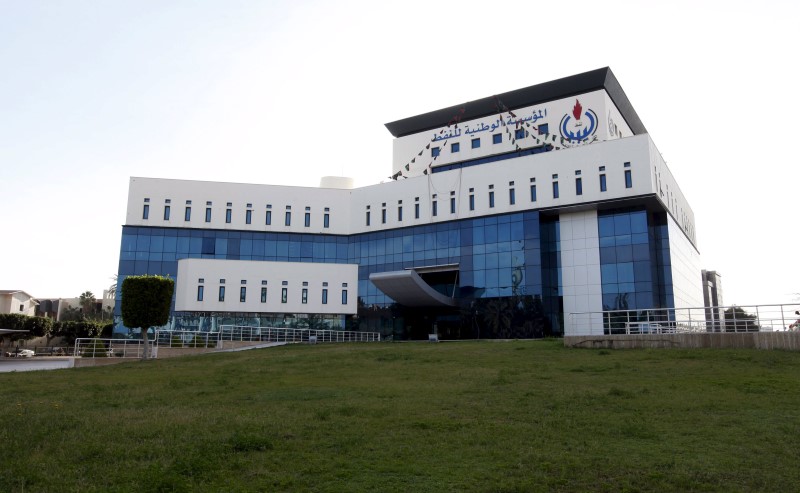(Bloomberg) -- Libya’s oil industry, all but shut down since January because of civil war, is reopening -- in parts.
Oil output has almost tripled to 250,000 barrels a day since the partial lifting last week of a blockade on the OPEC member’s energy facilities.
The state National Oil Corp. allowed exports to resume at the ports of Hariga, Brega and Zueitina. Four other oil ports are still closed, including Es Sider and Ras Lanuf -- the country’s largest and third-largest -- and Zawiya, which ships crude from Libya’s biggest field, Sharara. The NOC said it’s evaluating security at export terminals that are still shut.
Production in Libya, home to Africa’s largest crude reserves, plummeted to less than 100,000 barrels a day in January from 1.2 million after Khalifa Haftar, a Russian-backed commander who controls the nation’s eastern region, blockaded energy infrastructure.
Goldman Sachs Group Inc (NYSE:GS). forecasts that output will rebound to 550,000 barrels a day by the end of the year. Analysts at Bloomberg Intelligence see production hitting 1 million barrels a day in the fourth quarter -- putting more pressure on oil prices already hammered by the coronavirus pandemic -- if a truce holds between Haftar and the United Nations-recognized government of Prime Minister Fayez al-Sarraj.
Libya has a way of confounding optimists, and previous agreements to reopen its oil industry have failed. That said, any additional supplies would enter the crude market at an awkward time: A recovery from the historic slump triggered by the virus pandemic is faltering, and the Organization of Petroleum Exporting Countries and allies such as Russia are easing their self-imposed limits on output.
Libya is exempt from these OPEC+ limits, due to its strife. However, the amount of any extra oil the country can export will depend on how quickly it can fix wellheads, pipelines and storage tanks that have been neglected or damaged during the conflict.
Here’s the latest:
- Fields that supply the reopened ports of Hariga, Brega and Zueitina are pumping an additional 150,000 barrels a day, according to two people with knowledge of the situation. Production will continue to rise as tankers arrive and load crude from storage, making room for fresh oil from the fields, they said
- Arabian Gulf Oil Co., which operates Hariga, said it restarted its Messla and Hamada fields but not its biggest deposit, Sarir
- Sirte Oil Co., which runs Brega, has resumed operations; Brega has 490,000 barrels in storage and a capacity of 1.3 million
- A tanker is expected at Zueitina on Oct. 3 to load 1 million barrels; that would allow fields feeding the terminal to boost production; the port can store more than 4.5 million barrels
- The tanker Marlin Shikoku loaded 1 million barrels from Hariga last week; the ship is chartered by Unipec, the trading arm of China’s largest state-owned refiner, Sinopec (NYSE:SHI)
- Delta Hellas, another Greek-flagged tanker, also loaded 1 million barrels at Hariga for Unipec
- At Es Sider, the Minerva Eleonora was to have loaded 630,000 barrels earlier this month before the order was canceled; the ship is still anchored at the port, which remains under force majeure
- The Sharara field is yet to restart, according to a person with knowledge of the situation. The western deposit, which can pump 300,000 barrels a day, is run by the NOC in a joint venture with France’s Total SE, Spain’s Repsol (OTC:REPYY) SA, Austria’s OMV AG and Norway’s Equinor ASA (NYSE:EQNR)
- The nearby El Feel field, in which Eni of Italy has a stake, is also shut down.
